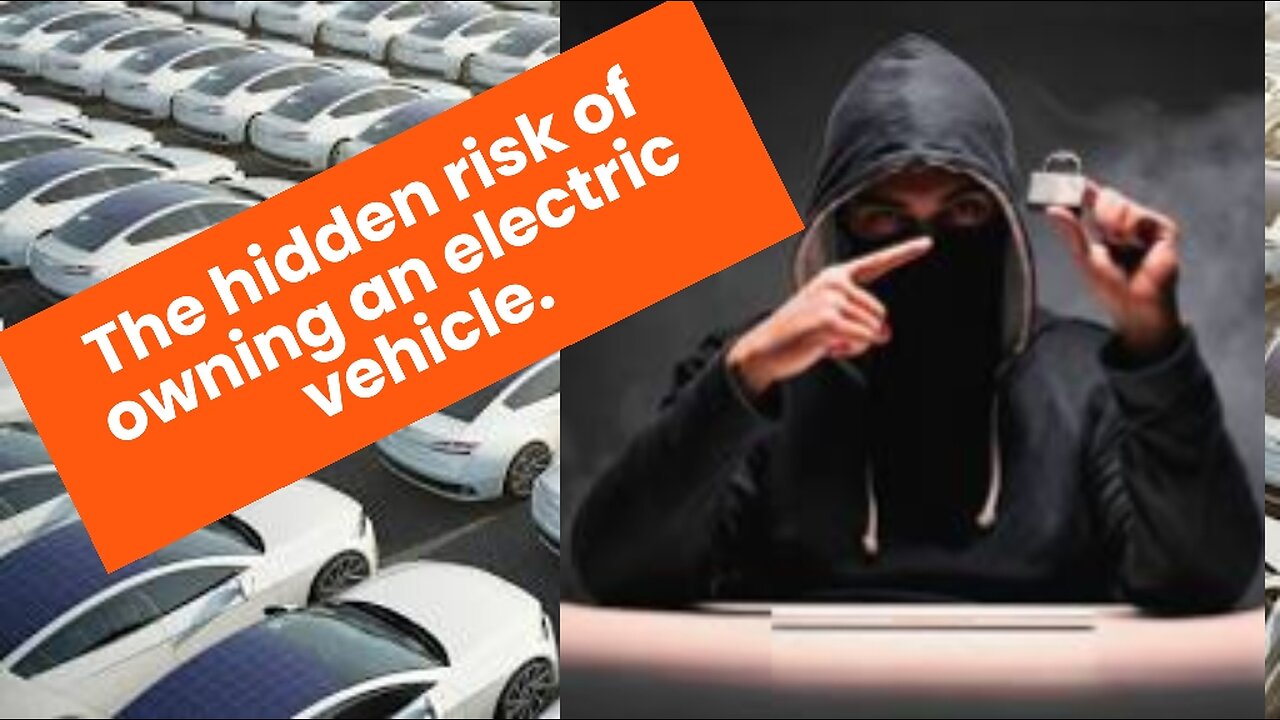Premium Only Content

The hidden risk of owning an electric car. #scrufftuff
**The Hidden Risks of Owning an Electric Vehicle: When Manufacturers Hold the Remote**
The rise of electric vehicles (EVs) heralds a greener future, but it also introduces a troubling reality: manufacturers’ ability to remotely control your car. While features like over-the-air updates and diagnostics offer convenience, the power to disable or manipulate a vehicle raises significant concerns for owners.
### 1. **Erosion of Ownership Rights**
Purchasing an EV might feel more like leasing a service than owning a car. Manufacturers can remotely disable critical functions, often justified for updates or security. However, this power can be misused. For instance, during payment disputes (e.g., delayed leasing fees), companies could immobilize the vehicle, effectively holding it hostage. This blurs the line between ownership and subscription, stripping consumers of autonomy.
### 2. **Privacy Invasion**
EVs continuously collect data—location, driving patterns, even cabin microphone access. Remote control capabilities mean manufacturers (or hackers) could exploit this data. Owners risk becoming transparent to corporations, with little recourse to opt out of invasive tracking.
### 3. **Safety Vulnerabilities**
Imagine rushing to a hospital only to find your car disabled remotely. Such scenarios aren’t just hypothetical; they highlight life-threatening risks. Additionally, reliance on manufacturer-controlled software introduces fragility. A glitch during an update could strand drivers, while system outages might render entire fleets inoperable.
### 4. **Cybersecurity Threats**
Remote access is a double-edged sword. Hackers could exploit vulnerabilities to steal data, hijack controls, or cause accidents. The more connected a car, the larger the attack surface—turning EVs into potential targets for cybercriminals.
### 5. **Legal and Ethical Gray Zones**
Who’s liable if a manufacturer’s remote intervention causes harm? Current laws lag behind technology, leaving gaps in accountability. Ethically, should corporations wield power over personal property? This questions fundamental consumer rights and highlights the need for regulatory frameworks.
### 6. **Resale and Longevity Concerns**
EVs risk obsolescence if manufacturers cease support or enforce restrictive software policies. Resale value could plummet if new owners face reauthorization hurdles or fear sudden disablement.
### Conclusion: A Call for Balance
While remote technology offers benefits, unchecked control by manufacturers undermines consumer trust. Policymakers must establish boundaries to protect ownership rights, privacy, and safety. As EVs evolve, the mantra should be innovation with empowerment—not control.
Owners deserve vehicles that serve *them*, not corporate interests. The road to a sustainable future mustn’t sacrifice the principles of autonomy and accountability.
-
 2:05
2:05
ScrufTuff
1 month agoHouse Republican Revels in People Losing Medicaid Thanks to Trump’s Bill: ‘Just Some Americans?
371 -
 3:36:03
3:36:03
Mally_Mouse
1 day ago🌶️ 🥵Spicy BITE Saturday!! 🥵🌶️- Let's Play: Tower Unite!
63.5K2 -
 58:59
58:59
MattMorseTV
12 hours ago $1.70 earned🔴Trump just BROKE Newsom.🔴
82.6K92 -
 18:14
18:14
Her Patriot Voice
12 hours agoWho Is WORSE for NYC: Trump Girl or Socialist?
61.9K35 -
 3:39:42
3:39:42
SavageJayGatsby
11 hours agoSpicy Saturday with Mally! | Road to 100 | $300 Weekly Goal for Spicy Bites!
56.3K1 -
 3:35:50
3:35:50
FomoTV
13 hours ago🚨 Swamp Theater: FBI Raids Bolton 🕵 Still NO Epstein Files, Trump's Troops & the Red Heifer Hoax 🐂 | Fomocast 08.23.25
26.8K7 -
 6:04:40
6:04:40
Akademiks
16 hours agoRoc Nation & Meg Thee Stallion did a 7 HOUR Deposition with me. Drake Secret Kid Finally Revealed.
62.4K3 -
 24:19
24:19
Stephen Gardner
12 hours ago🚨BREAKING: FBI Raid of John Bolton’s House Reveals THIS!
64.4K146 -
 8:31
8:31
MattMorseTV
14 hours ago $1.22 earnedTexas just did the IMPOSSIBLE.
53.2K70 -
 24:39
24:39
MYLUNCHBREAK CHANNEL PAGE
1 day agoInterdimensional Beings at Borobudur
60.5K38